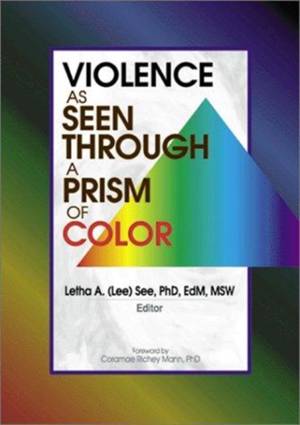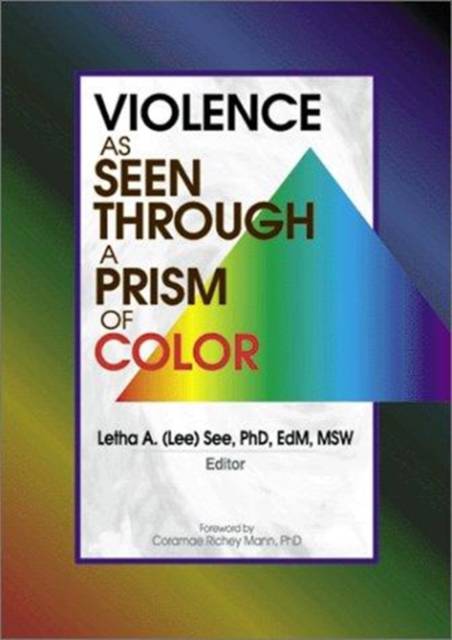
- Retrait gratuit dans votre magasin Club
- 7.000.000 titres dans notre catalogue
- Payer en toute sécurité
- Toujours un magasin près de chez vous
- Retrait gratuit dans votre magasin Club
- 7.000.000 titres dans notre catalogue
- Payer en toute sécurité
- Toujours un magasin près de chez vous
Description
So many parts of society target citizens of color for violence--what can be done? Violence as Seen Through a Prism of Color examines violence from a structural perspective, including violence in prisons, schools and colleges, churches, homes, and within political/corporate structures.This unique, hard-hitting book argues that individual violence stems from the structure of our society and its institutions. Most of the contributors are African- American educators and practitioners who have a thorough understanding of structural violence. Some have experienced political violence; others have expert knowledge of structural violence within the criminal justice system, educational institutions, and elsewhere--even in churches and homes. Their writings are undeniably, unflinchingly authentic--it is impossible not to be moved and enraged by what they have to say. The good news is that in addition to calling attention to the structural violence in our society they provide excellent insights on how the situation might be resolved.Violence as Seen Through a Prism of Color shows:
- that much of the violence within the criminal justice system stems from decisions made at the highest levels of government
- that minority offenders are much more frequently convicted and more harshly sentenced than their white counterparts
- how cultural racism contributes to the construction of motives for lynching, hate crime, and police violence against Americans of color such as Abner Louima, Amadou Diallo, and Rodney King
- how the judicial system encourages black on black violence by neglecting to halt criminal activities in non-white neighborhoods
- how, in the words of Mahatma Gandhi, "Poverty is the worst form of violence"You'll also learn:
- how corporations are amassing great wealth through privatizing prisons and conscripting the labor of non-violent African-American prisoners
- how racial profiling affects people of color
- how the media has exploited black men imprisoned for minor drug offenses
- how and why violence occurs in and against the black churchHelpful charts and tables (like one that names the corporations that use prison labor) supplement the material--you'll be surprised at what you learn! Extensive references are included at the end of each chapter.
Spécifications
Parties prenantes
- Auteur(s) :
- Editeur:
Contenu
- Nombre de pages :
- 254
- Langue:
- Anglais
Caractéristiques
- EAN:
- 9780789013934
- Date de parution :
- 26-11-01
- Format:
- Livre broché
- Format numérique:
- Trade paperback (VS)
- Dimensions :
- 155 mm x 212 mm
- Poids :
- 594 g







